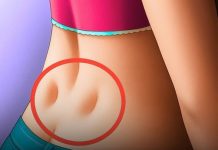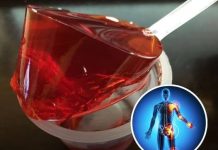It’s a situation many people have experienced: you’re sitting down, doing absolutely nothing strenuous, and suddenly, a sharp stabbing pain strikes your chest. Naturally, your first thought might be, “Am I having a heart attack?” The reality, however, is far less alarming. In many cases, this sudden pain is actually a harmless condition known as Precordial Catch Syndrome (PCS).
While chest pain is often associated with cardiac problems, this particular type of pain is quite different. It is not accompanied by other serious symptoms like shortness of breath, dizziness, or pain radiating to the left arm. And most importantly, it usually disappears just as quickly as it appeared — often within a few minutes.
A Common But Little-Known Condition
Precordial Catch Syndrome, sometimes referred to as Texidor’s Twinge, is not well-known among the general public. Despite being a common experience, especially in children and young adults, many people have never heard of it. First identified in the late 19th century, PCS is characterized by sudden, localized pain in the left side of the chest, often near the heart. However, despite its alarming location, it has nothing to do with heart function.
PCS usually affects individuals between the ages of 6 and 20, but it can occasionally occur in adults. It typically happens while a person is at rest — sitting, lying down, or even standing still — rather than during physical exertion, which is one key reason doctors do not associate it with cardiovascular problems.
What Causes Precordial Catch Syndrome?
Doctors are still not entirely certain what causes PCS. The most accepted theory is that the pain results from a brief irritation or pinching of the intercostal nerves, which run between the ribs and control sensation in the chest wall. Another theory suggests that it could be due to a minor spasm in the muscles or ligaments of the chest.

Some people report the pain gets worse when they try to breathe in deeply, while others find that changing posture or taking slow breaths can help relieve the discomfort. The pain usually does not last longer than a few minutes, and there are no lasting effects once it subsides.
Why You Shouldn’t Panic
Because of its sudden and sharp nature, PCS can trigger anxiety — especially in those who are already concerned about their heart health. However, medical professionals stress that PCS is completely harmless and does not require medical treatment in most cases.
If you are otherwise healthy, and you’re not experiencing other concerning symptoms like chest tightness, sweating, nausea, or radiating arm pain, then that quick stab of pain is most likely nothing to worry about. Anxiety itself, in fact, can sometimes intensify or even mimic chest pain, which can make the whole situation feel worse than it really is.
When to See a Doctor
Although PCS is benign, it’s always a good idea to check with a medical professional if:
- The pain lasts longer than a few minutes
- It occurs frequently
- It happens during physical activity
- It is accompanied by shortness of breath, dizziness, or other unusual symptoms
- Better to be cautious than ignore something that could be serious.

Final Thoughts: A Minor Pain With a Big Scare
While chest pain should never be ignored without thought, understanding the nature of Precordial Catch Syndrome can help ease fears and reduce unnecessary stress. For most people, PCS is a minor inconvenience — a sudden twinge that passes quickly and leaves no trace. Yet its dramatic presentation often leads to panic.
Conclusion
So the next time you feel a sharp, quick pain in your chest while sitting or relaxing, and it goes away within minutes without any other issues, you can rest a little easier knowing it might just be Precordial Catch Syndrome — strange, uncomfortable, but not dangerous.

















